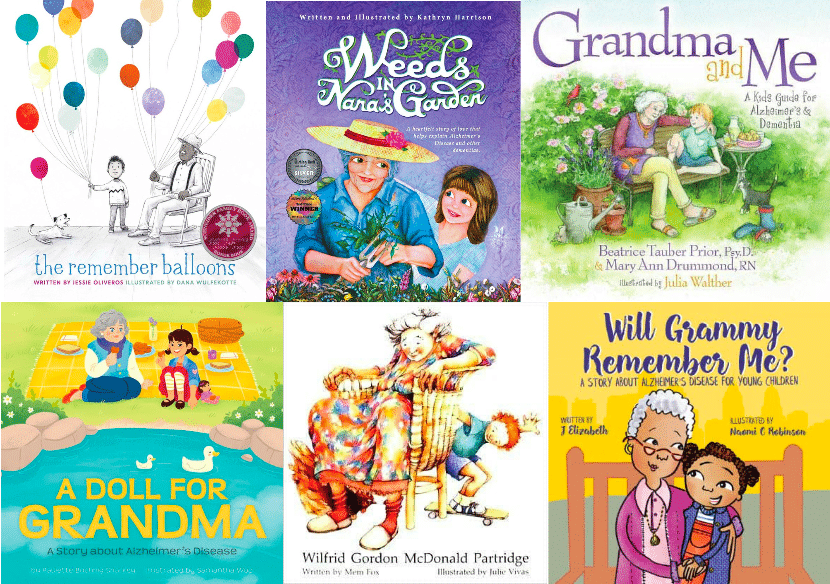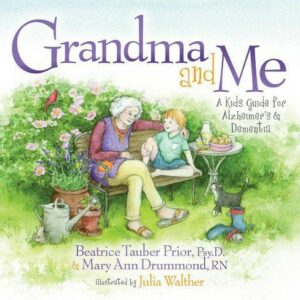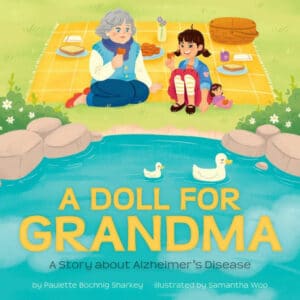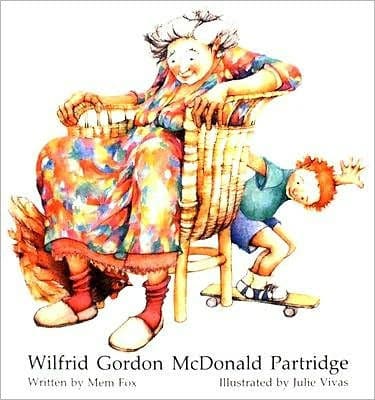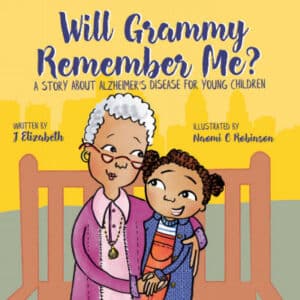Understanding the way that Alzheimer’s disease and related dementias affect loved ones is a hard concept for many adults to wrap their head around. For children, it might seem tougher to explain and comprehend.
Alison Lynn, MSW, LCSW, associate director for social work at the Penn Memory Center, suggests children’s books as a way to introduce a diagnosis to them and its effects on their relationships with older loved ones.
“We get a fair number of questions regarding grandchildren in families that live together intergenerationally,” Lynn said. “Questions are more commonly focused on what to do after the diagnosis and the real-world issues that arise than about how to explain the diagnosis itself. Situations like these have also increased due to the pandemic.”
Children’s books that address dementia and Alzheimer’s disease help relay the concepts that are less concrete and harder to grasp.
“Books are often more helpful for me and for many people in building empathy and understanding,” Lynn said. “For children, you can use literature with metaphors to explain and to show other children’s experiences by way of example. Books also provide understanding through repetition – they can read it every night before bed and, if they are old enough, on their own as well – and it helps them feel more comfortable asking questions of their parents or grandparents.”
Below are books we recommend that can be used as tools to start important conversations with the children you adore.
- “The Remember Balloons” by Jessie Oliveros
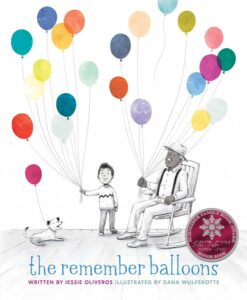
But when Grandpa’s balloons begin to float away, James is heartbroken. No matter how hard he runs, James can’t catch them. One day, Grandpa lets go of the silver balloon—and he doesn’t even notice! Grandpa no longer has balloons of his own. But James has many more than before. It’s up to him to share those balloons, one by one.
Find it on: Goodreads | Amazon | Bookshop
- “Weeds in Nana’s Garden” by Kathryn Harrison
An award-winning picture book, “Weeds in Nana’s Garden” uses weeds in a magical garden that 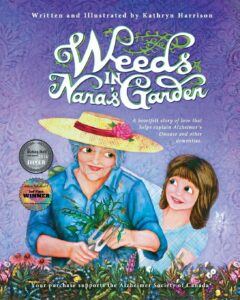
“Managing dementia is a difficult journey for families,” Harrison said. “But there is an opportunity to gain from involving children in the process. Following my family’s experience with my mom’s dementia, I wanted to find ways to encourage more kids to play a part. My hope is that this brightly illustrated and imaginative book will help many children better understand what is happening when a loved one has dementia so they feel more comfortable staying involved.”
Find it on: Goodreads | Amazon | Bookshop
Following the relationship of Matthew and his grandmother as it evolves after her diagnosis with Alzheimer’s disease, “Grandma and Me” provides a gentle introduction to Alzheimer’s disease for children. The authors have professional experience in dementia care and have designed the book for children aged 5-10 years old.
“By reading the story of Grandma and Me with your child, you will ensure their feelings are addressed while providing them with the necessary tools to maintain positive interactions for as long as possible with their loved one living with dementia,” the authors write in the introduction to the book.
Find it on: Goodreads | Amazon | Website
Kiera loves spending time with her grandma. They play dress up. They paint their nails. They make cookies for picnics with Kiera’s doll. But then Grandma starts to change. She starts misplacing items and forgetting how to do everyday tasks. Soon she has to move out of her home into a memory-care center for people with Alzheimer’s. She starts calling Kiera by a different name. Then Kiera has an idea and finds a new way to enjoy time with her Grandma.
“I wrote A Doll for Grandma to show children that the best way to love people with Alzheimer’s disease is just as they are,” Sharkey said. “When you accept their altered sense of reality and join them in their world, they will feel your love. All author proceeds support research to end Alzheimer’s disease.”
Find it on: Goodreads | Amazon | Bookshop
Wilfrid Gordon McDonald Partridge lives next door to a nursing home. When he finds out that his special friend, Nancy Alison Delacourt Cooper is losing her memory he sets out to find what a memory is.
This book is Lynn’s personal favorite and is a story that she has grown up reading.
“It’s a lovely book that focuses more on the story, while your understanding of dementia, Alzheimer’s disease, or forgetfulness is almost secondary,” Lynn said. “It’s a good way to see what your child has already noticed or picked up before you sit down and say, ‘Grandma has Alzheimer’s disease.’ It’s also an appropriate story for any child because it normalizes aging and having intergenerational relationships.”
Find it on: Goodreads | Amazon | Bookshop
Will Grammy Remember Me is a heartfelt story about the beautiful relationship between a girl and her grandmother, Grammy. The young girl is worried when her Grammy did not pick her up from school one day. Their journey begins after her parents explained to her and her brother that Grammy has a debilitating disease named Alzheimer’s.
In May, J Elizabeth partnered with the Penn Memory Center to hold a family-friendly program about Alzheimer’s disease and dementia. You can watch a recording of this event hosted by the Free Library of Philadelphia here.
Find it on: Purple Scarf Publishing | Watch “Will Grammy Remember?” event
